This Is What You Need To Know About Sugar
#30DaysOfSugar
12 Scary Facts About Sugar Everyone Needs To Know
Sugar is scary. Even if you’re not focused on your diet or sugar intake, you probably still know that sugar isn’t perhaps the best food for your body - but just how bad is sugar, and how much do you really know about its effects? Well, in this post we’re getting into 12 MUST KNOW eye opening facts about sugar and the harmful problems it can cause in your body that you should keep in mind before you drink that next bottle of soda.
Sugar is scary. Even if you’re not focused on your diet or sugar intake, you probably still know that sugar isn’t perhaps the best food for your body - but just how bad is sugar, and how much do you really know about its effects? Well, in this post we’re getting into 12 MUST KNOW eye opening facts about sugar and the harmful problems it can cause in your body that you should keep in mind before you drink that next bottle of soda.
SUGAR is a major problem - I think that this is the one thing all doctors, nutritionists, and scientists all kinds can agree on.
Added sugars aren't a necessary nutrient in your diet, and they can cause serious harm if eaten in large amounts on a regular basis.
I know this personally, because I've experienced the effects of having a sugar addiction first hand.
I used to use sugar as a food comforter which developed into a heavy reliance on sugar and an inability to stop craving the stuff. The worst part is that I didn’t even realize what I was doing to myself.
Before I knew it (and long story short), it was a bit of a health disaster.
I gained weight, and I felt inflamed and sick. I decided to cut everything unhealthy out of my diet but sugar, but the problems persisted. That’s when it became obvious to me that sugar was the root of the problem.
I then tried to cut sugar out of my diet too, but I would cave after a day or two - the cravings were just too strong.
Desperate to help my health, I researched and researched, learning all there was to help myself.
Eventually I was able to create an effective way to heal my body and my cravings, and this has now led me to want to share everything I found out about sugar and its toxicity, and to have a passion about spreading the word on this subject.
I want to help other people like me AND people who don’t know what they could be doing to their health in terms of sugar, and that’s where this blog post comes in.
There is mounting evidence through studies and research that sugar is the primary factor causing not only obesity, but also chronic and lethal health issues.
Ending sugar over-consumption could very well lead to reduced disease rates.
This is exactly why I've gathered some compelling disturbing evidence on just how harmful sugar can actually be. So, here are 12 eye opening facts everyone should know about sugar and its detrimental side-effects.
1. Sugar Leads to Spooky Liver Problems
Your organ uses a type of sugar called fructose to make fat, so too much refined sugar and high-fructose corn syrup causes a fatty buildup that can lead to liver disease. Some studies have even shown that sugar can be as damaging to the liver as alcohol, even if you're not overweight. Scary!
Scientists have started linking fructose consumption to specifically non-alcoholic fatty liver disease and non-alcoholic steatohepatitis.
Fructose is found in fruit and is what makes fruit taste so sweet, but fruit’s fructose is naturally occurring so generally it’s okay.
The big problem is that when fructose is taken from corn, beets, sugarcane and manipulated, it loses all of it’s nutrients and fiber. This means that your body can no longer deal with the sugar intake properly, taking a toll on the liver.
2. Liquid Sugar Is Basically Poison… Yes, I’m Looking at You Soda
When it comes to sugar over-consumption, the biggest culprit is sneaky additions of high-fructose corn syrup, especially in the form of beverages like sodas, fruit juice, energy drinks, and sports drinks.
This actually the number one source of calories in the United States of America.
I mean… just think for one second about how much easier it is to go overboard when drinking a soda than it is to overdo cake. Makes sense now, right?
Plus, it’s harder to feel as full from a calorific, sugary beverage than it is from eating the same calorie and sugar content.
Food and drink manufacturers started switching their sweeteners from sucrose (table sugar) to corn syrup in around the 1970s, when they learnt that HFCS was cheaper than sucrose and was 20% sweeter, making us crave it more.
The fact that most fructose is consumed in a liquid beverage form increases its negative metabolic effects. Sipping on one can of soda per day can increase your risk of dying from heart disease by around one-third.
3. High Fructose Corn Syrup IS TOXIC
As I mentioned above, HFCS isn't natural - it’s made in laboratories. The U.S. government subsidizes corn production by paying growers, making HFCS cheaper when compared to sugar.
Since 1970, when HRCS first started showing up, obesity rates in the US have more than doubled, with diabetes cases tripling.
Some will claim that consuming HFCS is not any worse for you than consuming sugar, but contemporary scientific research says the contrary.
There is a ton of scientific evidence actually backing the negative health effects of sugar and HFCS, but it’s often buried by big business.
Industry groups representing the Sugar Association and the Corn Refiners Association have loaded a millions on countering science that proves negative health consequences.
HFCS contain free-form monosaccharides of fructose and glucose, meaning you can’t state that biologically it is equivalent to sucrose, which has a glycosidic bond that links the fructose and glucose together, which slows its break down in the body.
High Fructose Corn Syrup can be hidden in food everything from baby foods to condiments.
Fructose is primarily metabolized by the liver (the only organ that can transporter.) When in your liver, fructose will be metabolized like alcohol, turning directly into fat and causing mitochondrial and metabolic dysfunction.
4. ‘Apple Body Shape’ A.K.A Metabolic Syndrome
Metabolic syndrome is a group of risk factors that include abdominal fat, high blood pressure, high blood sugar, and unhealthy cholesterol levels. Metabolic syndrome has been linked to being overweight or obesity, and inactivity, as well as to insulin resistance.
Apparently, according to SugarScience, one BIG sign of metabolic syndrome is the apple body shape.
If you have a waist measurement that is larger than the measurement of your hips, this means that you should watch your health closely as it could mean problems in the future.
5. Sugar Is Hidden Under Different Names
Food manufacturers use many sneaky ways to hide the amount of added sugar listed on nutrition labels. This can cause you to buy a food product with more sugar than you wanted, without knowing it.
You might have difficulty navigating the nutrition label on the foods you look at, but trust me, it’s super important to recognize all the possible names of sugar that can be found in the ingredient list. It’s virtually impossible to curb your sugar intake without doing so.
The most popular sugars being used include:
cane sugar,
agave nectar,
barley malt,
date sugar,
blackstrap molasses,
carob syrup,
corn syrup solids,
dextran,
ethyl maltol,
fruit juice,
maple syrup,
glucose solids,
sorghum syrup,
brown sugar,
caramel,
dextrose,
fructose,
honey,
fruit juice concentrate,
evaporated cane juice,
invert sugar,
malt syrup,
raw sugar,
sucrose,
rice syrup,
molasses
and the list goes on and on…
You may have been told that some of these, like agave, are “healthier” forms of sugar. Sorry but, sugar is sugar and they all break down during digestion and raise your blood pressure.
It’s also important to note that the earlier on in the ingredient label that sugar is mentioned, the larger amount of sugar is in the food.
6. Refined Sugar Has ZERO Nutrition
Refined sugar comes from sugar cane or sugar beets, that have been processed to extract the sugar.
During this refining process, literally everything beneficial is removed. Refined sugar does not contain any vitamins, minerals, enzymes, fats, fiber.
There is NOTHING beneficial for you in there - if you never ate refined sugar again you would be totally okay. You only need a moderate amount of natural sugars, like ones found in fruit and veg!
7. Sugar Causes Cravings (#CravingBomb)
Sugar cravings… we all get that horrible, obsessive feeling in those moments when it’s like you can’t live without getting that slice of cake out of the fridge?
Ever get those moments where you feel like you can’t live without sneaking that slice of cake out of the fridge? Yep, you know what I mean.
As you probably already know from your cravings, it can be really hard to minimize your sugar intake, because well, sugar is addictive!
Studies are coming out and stating how sugar can affect your brain similarly to how cocaine and alcohol does. And it’s these brain changes that lead to nasty sugar craving cycles.
However, it IS possible to wean your brain off sugar if you have the right steps.
You can check out my essential steps to help you crush that sugar craving once and for all and find out what causes sugar cravings, over on my other blog post: When You Should Stop Eating Sugar, How To Do It.
8. Sugar Intakes Increases Your Risk of Death from Heart Disease and More
Other than metabolic syndrome, new studies are showing more and more possible links between over-consumption of sugar and different diseases.
Sugar has also been potentially connected to a higher risk of Alzheimer disease. This is really scary!
Fructose elevates uric acid, which decreases nitric oxide, raises angiotensin, and causes your smooth muscle cells to contract, causing your blood pressure to raise and this leading to kidney damage.
Increased uric acid also can lead to chronic low-level inflammation, which can be followed by chronically inflamed blood vessels, and in consequence, heart attacks and strokes.
A high intake of sugar and refined carbs may raise the risk of some types of cancers, and the rates of recurrence and decrease the rates of survival after cancer therapy.
Additionally, some evidence has shown that some specific cancers are caused by chronic inflammation.
A 15-year study published in the JAMA Internal Medicine concluded your risk of dying from heart disease rose in tandem with the amount of sugar you ate — regardless of age, sex, physical activity level, or body mass index.
Also, it is very important that you understand that when we talk about over-consumption of sugar, I mean ALL sugars.
When you're looking at your sugar consumption, don't just count the number of spoons of table sugar you drink and eat. Although it may be the worst stuff for your health, the over-consumption of sugar includes all other types of sugar, including natural sugars from fruit, honey, and agave.
9. Sugar Is Hidden in Everything
People try to simply stop eating sugar and fail all of the time. This is because the food industry wants to keep us hooked on what they’re selling, so they add sugar to EVERYTHING. It’s near impossible to avoid sugar and the ‘cravings coaster’ that comes with it.
Sugar is the MOST prevalent food additive out there, found in around 81% of food at your local grocery store! Crazy!
Added sugar in literally everything from yogurt to salad dressing. If you want to learn more about spotting hidden sugar and the 15+ ‘healthiest’ foods that are hiding it, check my post on that here.
10. We Eat WAY Too Much Sugar
According to the American Health Association, women should have no more than 6 teaspoons of sugar a day (25 grams) and men should have no more than 9 teaspoons a day (38 grams).
The World Health Organization's recommendation is that adults should get less than 10 percent (preferably less than 5 percent) of their daily calories from added sugar and, or natural sugar like in fruit juice.
But here’s the thing.
According to research from the Centers for Disease Control and Prevention, the average American consumes a WHOPPING 19.5 teaspoons (82 grams) of sugar every single day.
Basically, the average American will take in more than 3X the recommended amount of sugar per day.
You see overeating the recommend amount of sugar can be super easy, considering the hidden grams of sugar in your normal everyday foods - like sauces, drinks and even yogurt.
You’ll be SHOCKED by how easy it is for your sugar intake to add up.
Here’s a simple example: one serving of low-fat yogurt can contain as many as 30 grams of sugar — that's 60% of your daily limit.
11. Sugar Tricks Us Into Eating More
Sugar can mess with your appetite and stomach signals. This means that in many cases where you’re eating, you might not even be able to tell if you’re full - so you keep eating those sweets.
When we consistently consume too much sugar, it can cause leptin resistance.
Leptin is a very crucial hormone that lets your mind know when you’ve eaten enough, but if you have leptin resistance, your hormone becomes suppressed. So, you overeat because you have no idea how full you are.
12. Sugar is SOOO Addictive
Sugar is even more addictive than cocaine.
A study in 2007 found that 94% of rats tested would rather choose artificially sweetened water over cocaine (after being sensitized to the drug). Just think about that for a second!
Sugar fires up dopamine and lights up your brain in the same manners as drugs, and there’s gotta be a problem with that - especially given the issues that come with high sugar consumption, problems I have had first hand experience with, as you know.
And this goes for all food that spike your blood sugar levels. Junk food is addictive in the same way that heroin or cocaine is addictive too.
Anything that is a high glycemic food like white flour, white potatoes and refined starch is just as addictive as table sugar. Basically foods that spike your blood sugar are addictive.
No one wants to constantly be craving cake, cookies and fries, so if you think your cravings could be more, I've put together a list of signs of sugar addiction over at: Am I Addicted to Sugar? 8 Ways to Know If You’re a Sugar Addict + How to Stop It.
This Is What You Need to Know About Sugar - In Summary
I really do hope that my blog post has helped you see just how bad sugar is, and that now, you’re ready to tackle your sugar intake and work on sugar balance in your diet.
A healthy balance is key!
If you’re interested, you can come and join our free Facebook group ‘Sugar Balanced Living’ for support, tips, and recipes - your safe place to conquer your sugar cravings for good!
Sugar is a toxic thing.
Even though I was addicted to it, I was able to come out a person who can control what she eats and healthier, balanced, and happier for it. Personally I believe you can still indulge in sugar here and there as long as it’s not artificial or high fructose corn syrup.
You need to be able to control sugar, and have a balanced lifestyle.
Remember to eliminate from your diet right now: soda, fruit juice, sweetened beverages, processed foods that contain High Fructose Corn Syrup. When fructose is consumed in a liquid beverage form it increases the negative metabolic effects.
If you need help cutting back sugar, check out my FREE ‘Ultimate Guide to Crushing Your Sugar Cravings’ Downloadable Guide.
Get my ‘essential’ steps to help you crush that frustrating and annoying sugar craving once and for all. This guide + worksheets will allow you to learn exactly how to live with a positive and not overly restricted sugar balanced diet.



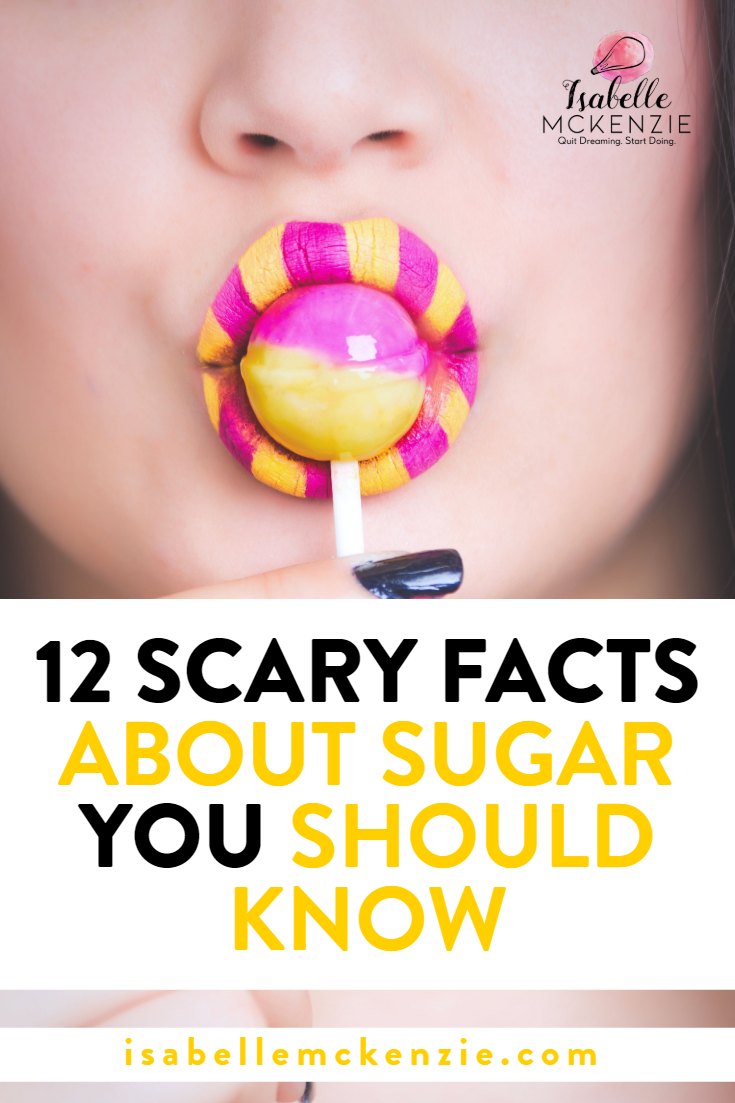
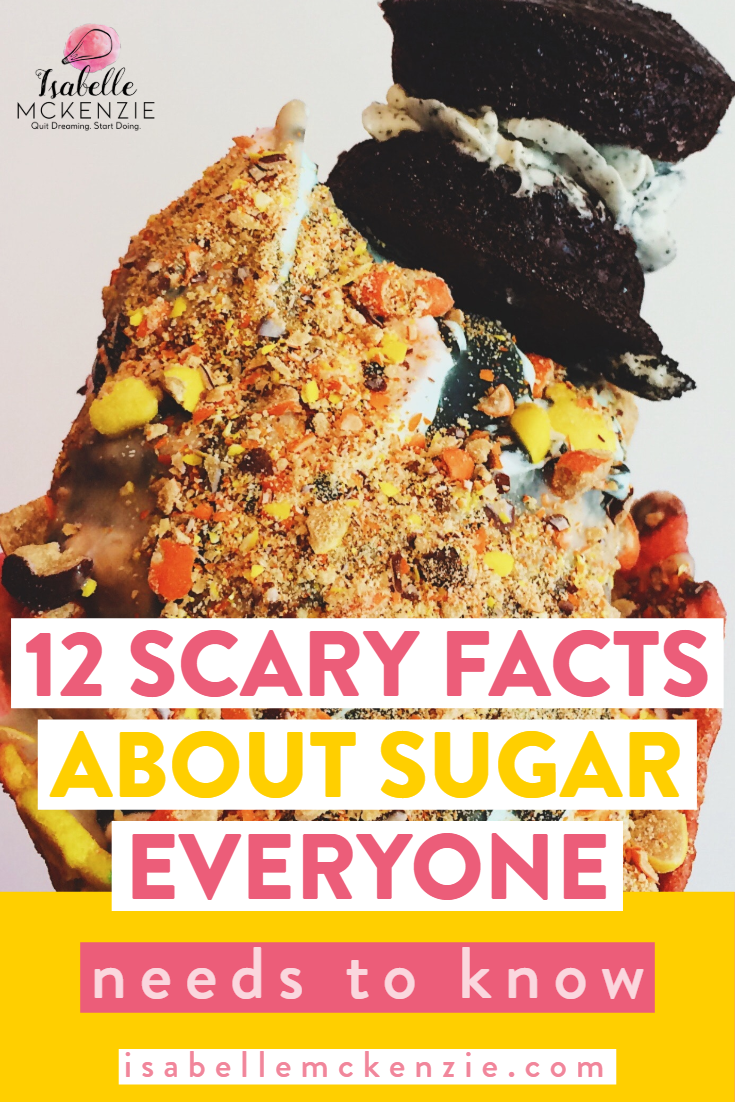
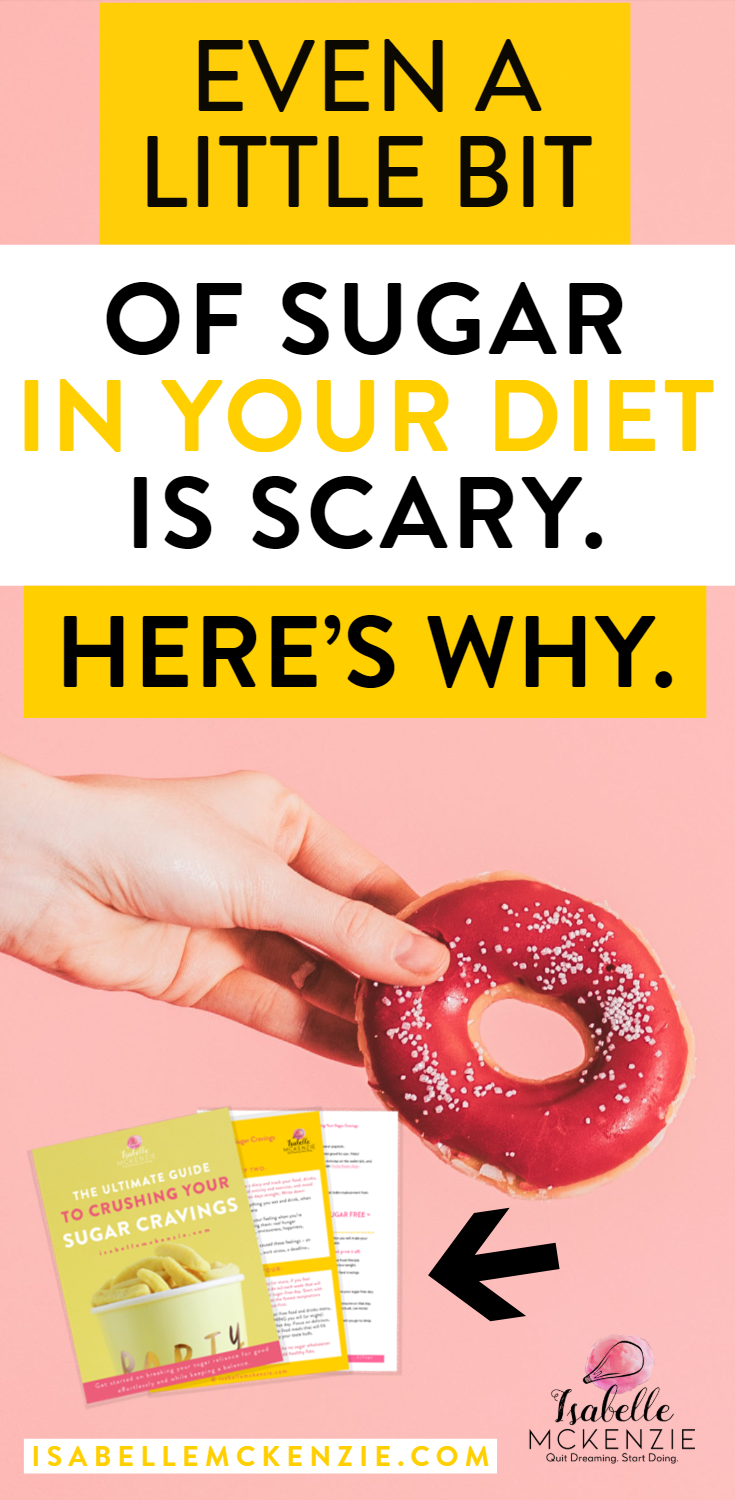
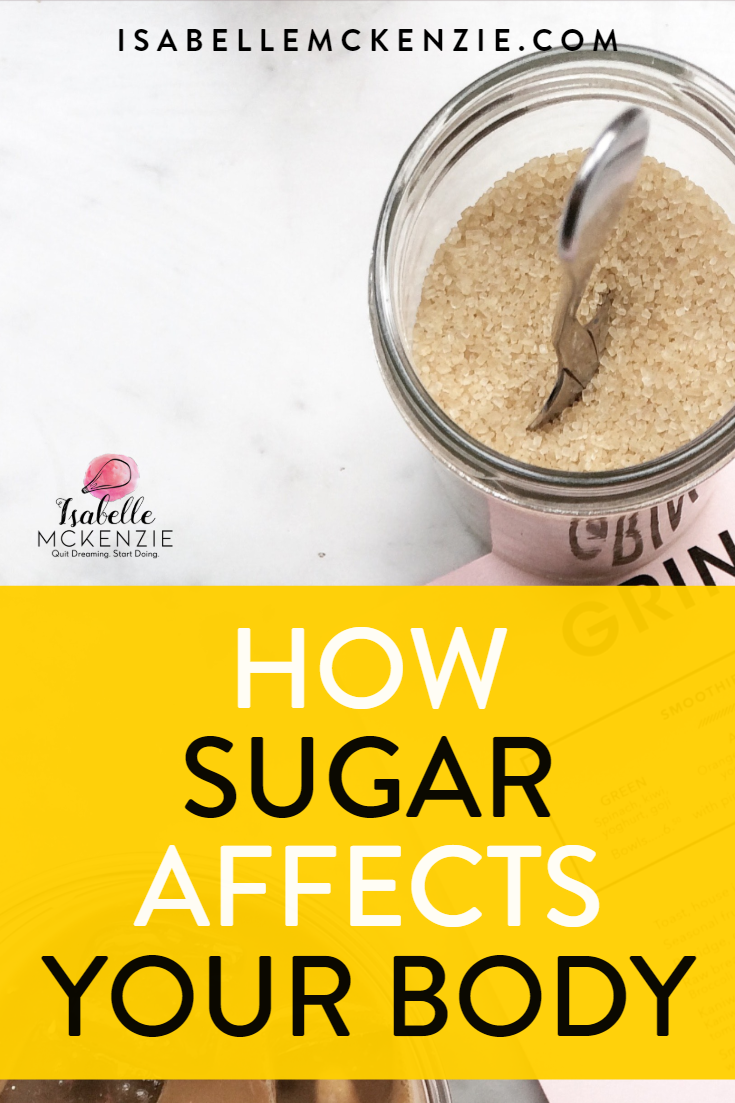














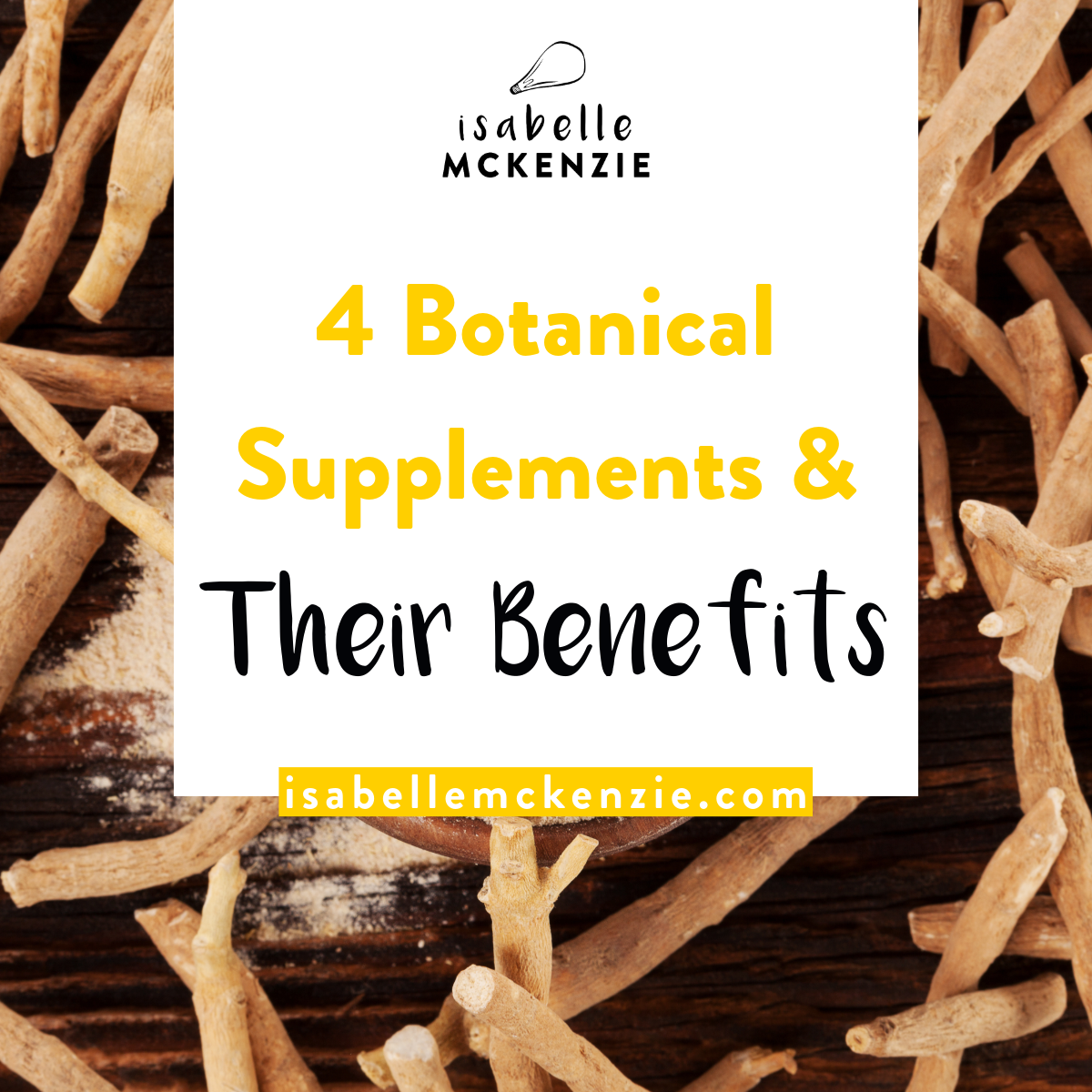
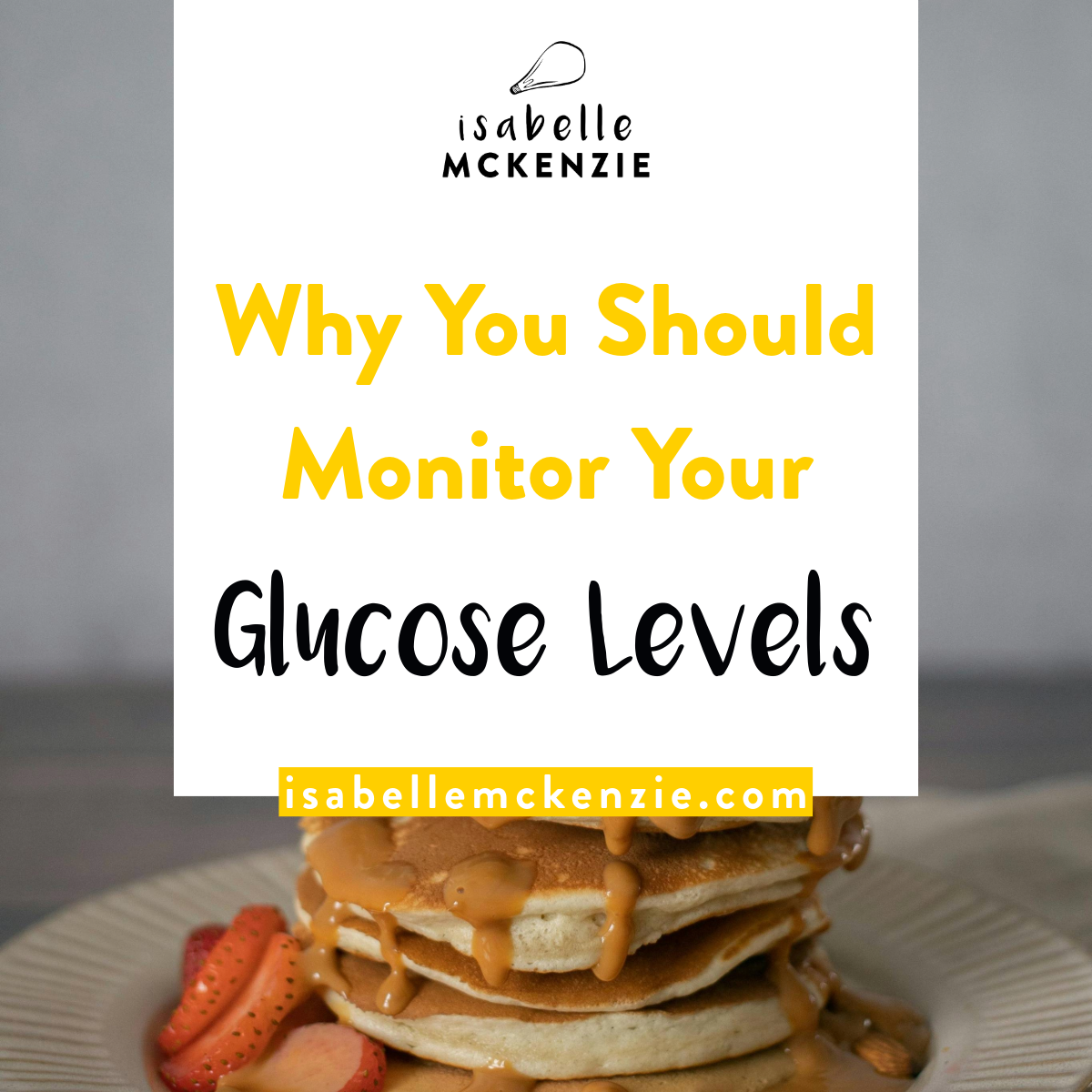



Here’s a Free Powerful Training for You!
Join us to learn how to banish binge/stress eating, food obsession and food cravings, and get lean and healthy for good (without struggling) ... especially for people who have tried everything and are still stuck.
SAVE MY SEAT